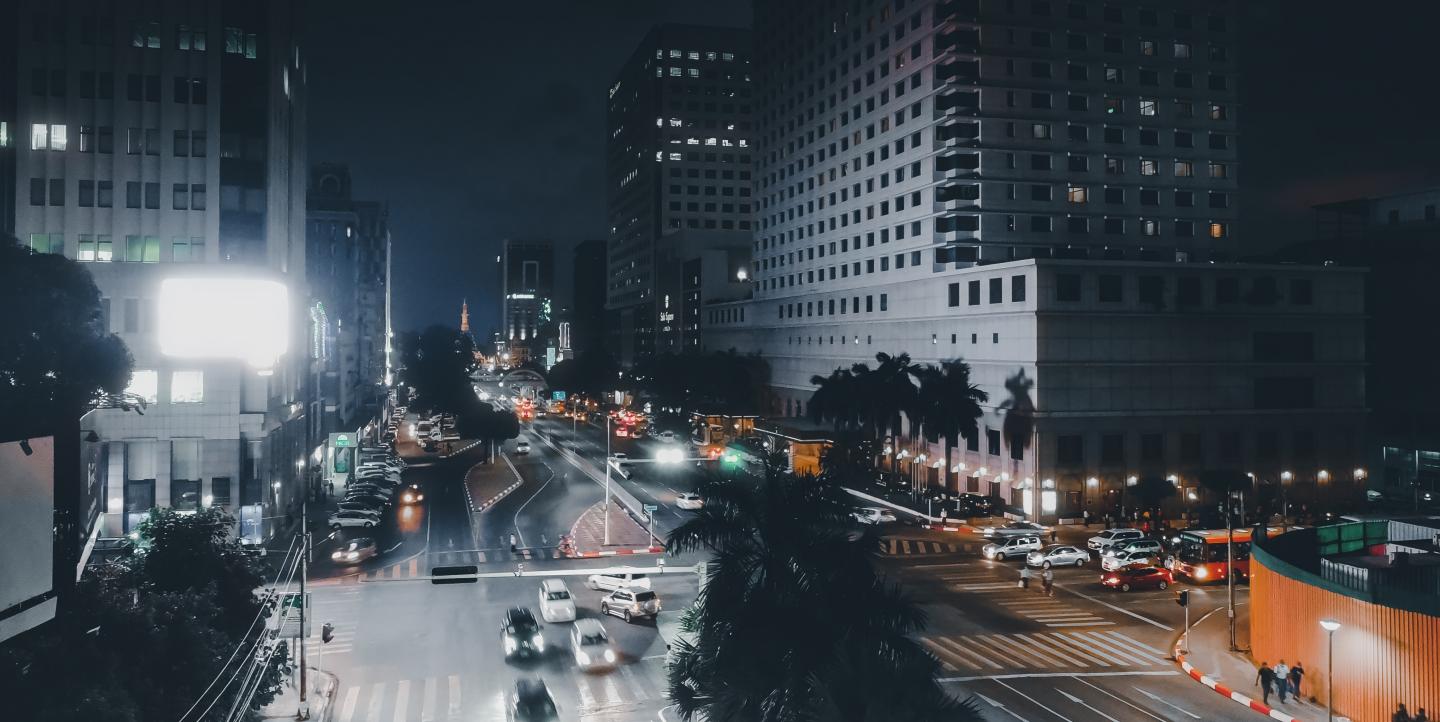Myanmar faced the largest uprising in its history this year. Since the military coup in early February, activists estimated about 850 civilians had been killed and more than 5,000 arrested, including 87 journalists, by early June.
The Myanmarese junta immediately sounded the death knell for what limited freedom of the press Myanmar had, hard won during the country's 10 years of civilian rule. In order to control the media and discourse, the junta banned the word "coup" from use, and in early March intensified its crackdown on journalists.
During the week of March 8 alone, five media outlets had their licenses revoked and another was prosecuted. Most continue to cover the news from secure locations, which sometimes requires leaving the country.
Safety of journalists and their sources
"I depend on NGOs and my local contacts for sources, but at least I report the news freely," said one Myanmarese journalist in exile. After covering the country for 12 years, this press agency employee had to leave his country because of the increasing danger. "I no longer felt safe in Myanmar, firstly, as a [Myanmarese] citizen and secondly, as a journalist,” he said. “There is no longer any rule of law in the country. Many people know that I work for the press, I could be reported at any time."
The reporter did not wish to give his name or his current location, which he does not share with anyone, even his sources: "For my interviews, I paid for an option on Skype, which locates my phone number in the U.S."
[Read more: This journalist wants to raise the bar for investigative reporting in Nigeria]
Covering Myanmar is as much about protecting yourself as it is about protecting your sources. Anyone who talks to a reporter there is at risk. Getting an initial contact may seem difficult and interviewing someone often requires an introduction by a third party. Aye Min Thant, an American-Myanmarese journalist confirmed this: "People really want to talk, as long as they have a safe way to do it. I give them a direct way to contact me via an encrypted application.”
Because of COVID-19, journalists were already accustomed to reporting remotely. Since the coup, however, they have conducted all of their work on the internet.
Like China, Myanmar has an intranet: the junta actively controls the web, social networks such as Facebook, Twitter or Instagram have been banned since the coup, and cuts occur regularly. Although banned, the use of VPNs remains relatively widespread and platforms such as Twitter are still widely used to talk politics, often under the hashtag #WhatshappeninginMyanmar.
Journalists report, however, that while people involved in the anti-coup movement are actively using social networks and the encrypted app Signal, it remains difficult to reach certain people, especially in rural areas. "Sometimes it takes several days to interview people, especially as they change their location, their phone number... it greatly delays the release of articles," said American journalist Emily Fishbein.
"Most of my stories are from anonymous sources," said Min Thant. Journalists must be careful to gain their contacts' trust, and take precautions to protect their sources. “I present myself clearly and as transparently as possible from the first contact," said Fishbein. "I let interviewees read their quotes and don't insist when they don't want to talk to the press.”
Collaboration and digital security
Far from the field, journalists must do their best to gather information. "I have adopted a collaborative work model," said Fishbein.
Meanwhile, exiled Myanmarese journalist Maung Moe, a pseudonym, relies mainly on user generated content — for example, photos and videos posted on social networks. She also discussed teamwork with local contacts: "My friends in [Myanmar] all have two, or even three, cell phones. One has a VPN with all the forbidden applications and stays at home, while the others can be used to go out. So there is no problem in case of control. Also, all their files are sent to me on the cloud, so they can quickly delete them in case the military organizes a raid at their house."
[Read more: New research details ferocity of online violence against Maria Ressa]
Taiwanese freelance journalist Pei-hua Yu, who specializes in Southeast Asia, recounted her own experience reporting from Myanmar. "At first I thought there were already a lot of journalists covering the events," she said. "But after receiving a message from an activist asking me to put her in touch with journalists, I realized that a number of stories on the ground were not being heard by the international press."
The young reporter, who then began writing about Myanmar, insisted on the need to humanize the crisis. "The first week, there were a lot of papers analyzing the causes of the coup, but we didn't see many human stories. I wanted to report on how the events influenced people's lives.”
The press has never been free in Myanmar; the coverage of the crisis is the result of courageous collaboration between journalists both on the ground and outside the country.
"Keep on covering [Myanmar]," urged Moe. "Even from a distance, we will happily help you."
Alice Hérait is a French journalist based in Taiwan. Her work has been published in Le Monde diplomatique, Mediapart and Asialyst.
This article was originally published by our French site. It was translated to English by Sedera Ranaivoarinosy.
Photo by Justin Min on Unsplash.


